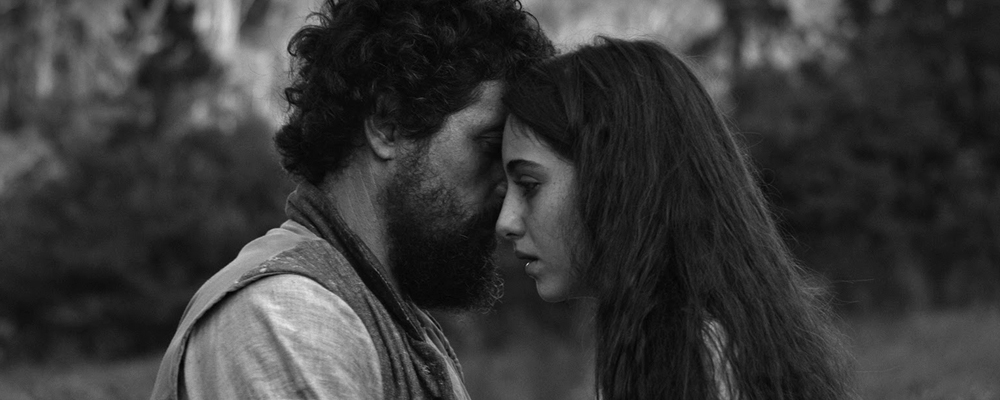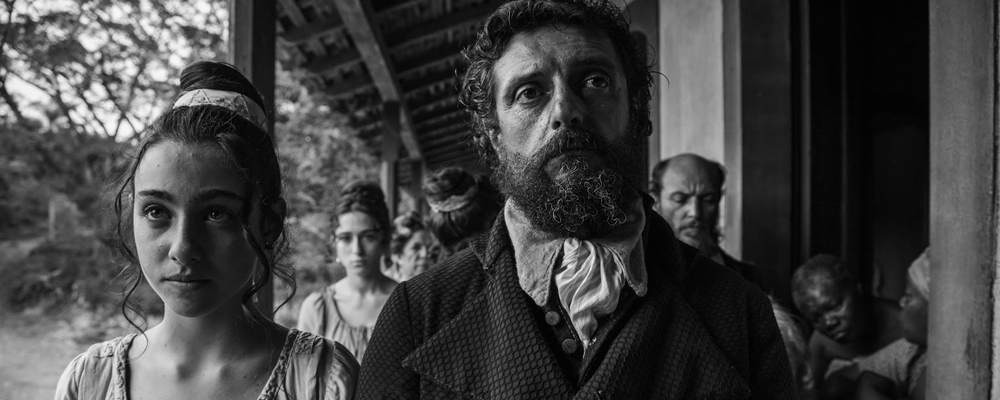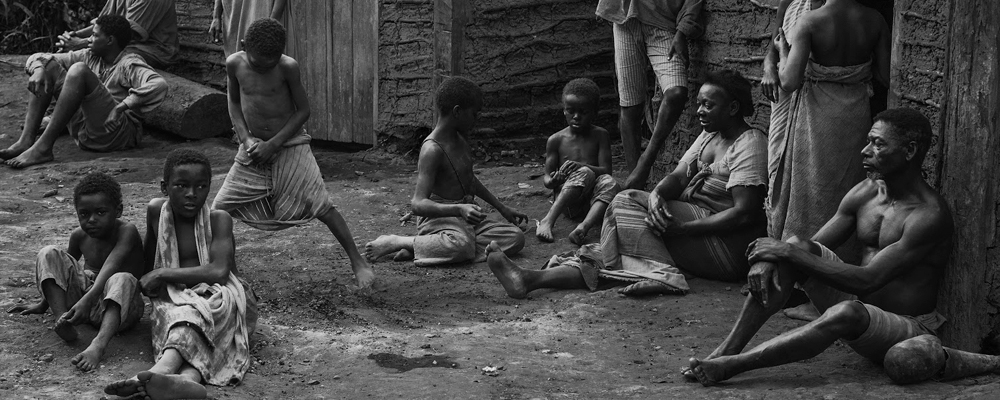‘Vazante’ Revisits Brazil’s Troubled Past
Michael Amundsen
“Vazante“ is a quietly despairing Brazilian film. It tells the story of the grim existence on a Brazilian plantation in 1817 where survival is the priority and race, extreme poverty and class dictate the rules of that survival. After cold and brutal Antonio returns to his plantation with supplies and slaves to find his wife and son have died, he marries his wife’s 12 year-old niece, Beatriz. When the young girl falls pregnant, it leads to tragic and fatal consequences that echo the diverse cultural and racial disparity under the grip of which, according to director Daniela Thomas, her native Brazil still suffers.
“When I left for New York, Brazil was under a dictatorship. I was 19. My father was a journalist who wrote for the opposition. He was arrested three times, which took a troubled toll on my youth. There was no freedom. You couldn’t read what you wanted. What you did read, you carried around as a Xerox copy.”
In New York City, Thomas found work with the La MaMa Experimental Theater where she stayed for six years until returning home. Through out the years, She has directed and written plays and designed sets for theater and opera. Then in the 1990’s, she began to make films.
On her first feature, “Foreign Land,” she collaborated with renowned director Walter Salles. Although she continued to work with Salles on two more features and two shorts, she has also collaborated with many others and contributed a short piece to “Paris, je t’aime.” “Vazante” is her first feature film as solo director.
Her work just before “Vazante” was as one of the directors of the Opening Ceremony for the Rio Summer Olympics. It was a large colorful celebration in contrast to the somber black and white imagery of “Vazante”.
When asked what thought she put into the transition between those two projects, Thomas shared what she kidded as her double personality. “Both projects share a common experience. I want everything I do to be an immersive experience for the audience. When it’s good, it tricks you into taking you some place you have never been before. When I first saw “2001, A Space Odyssey,” it was pure cinema. I was transported into a pure landscape. With “Vazante”, you are invited into a universe most are not aware of. It is an intensely productive culture.”
The world of “Vazante” is deceptively simple. The culminating moments of death, sex and conflict are mostly avoided while the director concentrates on moments of anticipation and the reaction afterwards. For example, the audience is not privy to the young bride giving birth. Instead we follow Antonio to the wilderness and are with him when he wakes in the morning and returns to the plantation. We are with him and we see through his eyes when we discover the aftermath of that birth.
Thomas explains, “It was a narrative choice. It is your (the audience’s) turn to complete the story. The film is not experimental in any way. It is not the first time that this type of story of young love has been told. But the way it’s told invites you to complete the story for yourself. That instant, we hold on the girl’s face as her husband returns and she understands that she is pregnant. I hope by then you have seen enough to understand the implications of that moment.
There is so much graphic cinema today. Death and sex. It doesn’t interest me. I find it disturbing. It doesn’t allow the audience to complete the story for themselves.”
Even though this is Thomas’ first film as solo director, a spirit of collaboration informed the entire process. “We workshopped the scenes with the actors. All of them were descendants of slaves, many of who were slaves in the area we filmed. It gave them a feel and look we would not have been able to find if we had cast from the city.
The actors playing the newly arrived slaves were from Mali. They didn’t speak Portuguese. No one knew what anyone was saying saying. I could only communicate with them through basic French.”
Thomas went on to point out the one moment in the story where the divisions between slave, white and free black were suspended.
“It was the wedding. It was party for all. We found musicians who played the old songs of the slave quarters and hired them for the music.”
One of her collaborations was particularly fruitful and was responsible one of the most poignant characters in the film: the leader of the newly arrived slaves.
“At one point, I had a block in the writing. I began to collaborate with one of the producers, Beto Amaral. He created the leader of the new slaves who became a symbol of the impossibility to communicate for those in that situation, for those who are a part of that forced movement of people from around the world. He shows the difficulty of working on the edge of colonization. Instead of escaping with his countrymen, he selflessly saves the injured white master and receives no reward or recognition. No one speaks his language and no one tries to understand him. It shows the lack of humanity.”
The one slave that can understand him a little turns out to be Antonio’s mistress, Feliciana. But she warns her own son to not talk to the stranger, refusing to even tell her son what the new slave has told her.
“She is a survivalist. She is afraid he will teach her son to challenge the master. Creating a survival mentality becomes the paradox that makes a reaction to this film so difficult.
Returning to the situation in modern Brazil, Thomas makes the point there is no redemption to this story. “How can anyone be happy with such enormous gaps between rich and poor, black and white,” she asks.
But what she finds hopeful and positive is the happy effect of the strong culture created by the slaves. “Black culture in Brazil is spirited and strongly resistant. Most of Brazilian culture, like that in America, came from black culture.”
Watching “Vazante”, one is aware of what obstacles Brazil’s culture faced to continue to be the vibrant influence it is today.
“Vazante” opens Jan. 12 in select cities.



